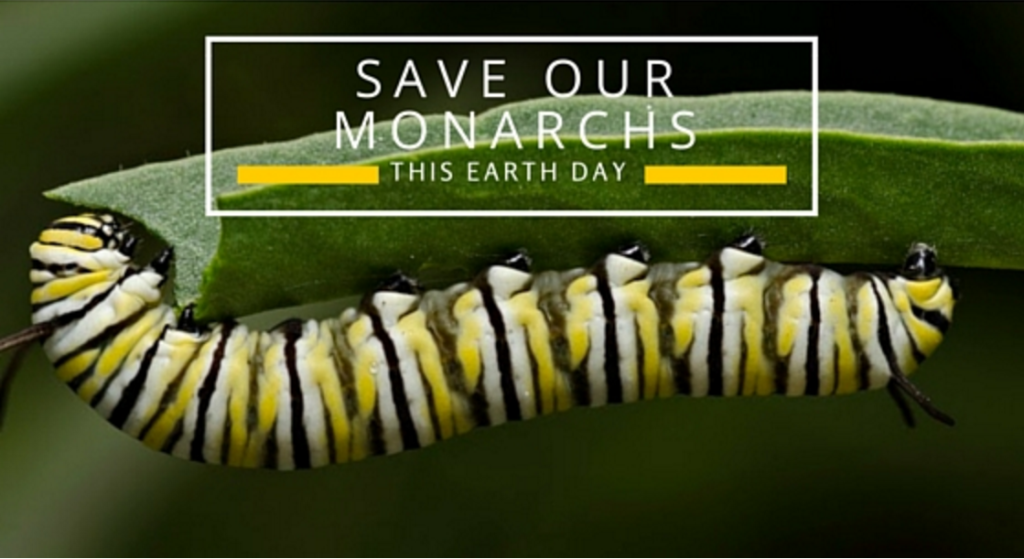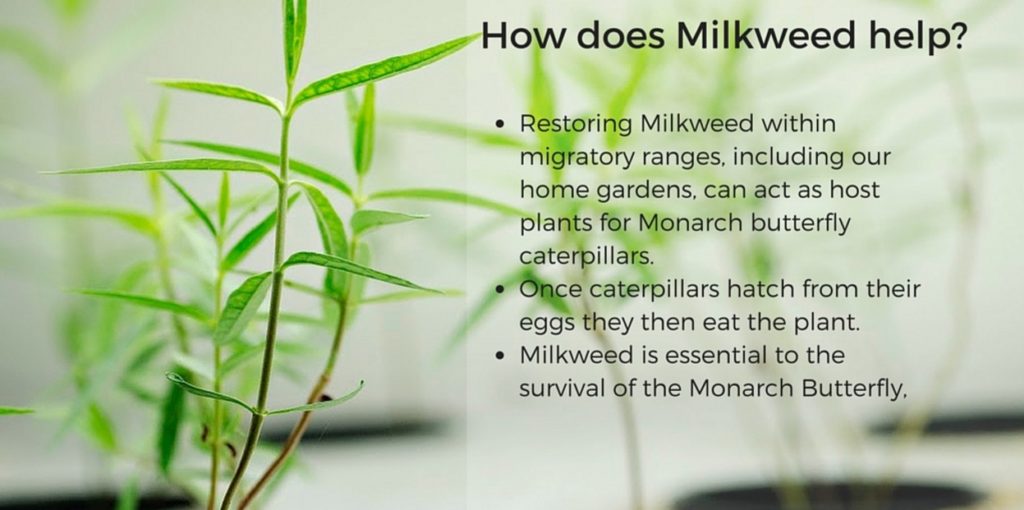Celebrate Earth Day by Saving Monarch Butterflies!

Earth Day is April 22nd!
The monarch butterfly’s existence is in serious danger. This iconic insect is threatened by human impact on the environment due to habitat fragmentation and agricultural practices, which has led to the loss of milkweed throughout North America. There is no more ubiquitous and iconic butterfly in North America than the monarch butterfly. In recent decades, however, monarch butterfly populations have dramatically declined and now stand at less than 20% of the historical average.
Why is the monarch butterfly so important?
- Monarch butterflies act as pollinators.
- They act as natural pest control, playing an important role in their food cycle – acting as prey and predators.
- Monarch butterflies are indicator species, meaning they can tell us about the current state of our environment and its health.
Adult monarchs look for nectar and food from several types of flowering plants, but milkweed is the sole source of food for their rapidly developing larvae. During summer months, monarchs live across the United States and into southern Canada — any place they can find nectar and their host plant. They lay their tiny cream-colored eggs, one at a time, on the undersides of milkweed leaves and around the flower clusters. In the course of a lifetime, a single monarch butterfly may lay as many as 400 eggs.
How can YOU help?
It’s simple… plant milkweed! Whether you have a patio or a large backyard, you can plant milkweed and help the monarch survive.
It is very important to make sure you are choosing the appropriate type of milkweed for the region. The tropical milkweed, A. curassavica, is readily available, but is a poor choice for planting in any area except where it naturally occurs. Because it continues to grow and bloom year round, it can potentially cause disruptions in the migration pattern. Native milkweed is regionally appropriate for Southern California. Since native milkweed does not persist year round, they are also less likely to carry and transmit dangerous pathogens to monarchs.
Donate $5 or more to ECOLIFE and we’ll send you a pack of 20 seeds in the mail!
Let’s make this Earth Day a great one for the monarch butterfly!
Donate $5 or more to ECOLIFE and write “milkweed” in the description. We’ll mail a pack of milkweed seeds! (Southern California residents only)
